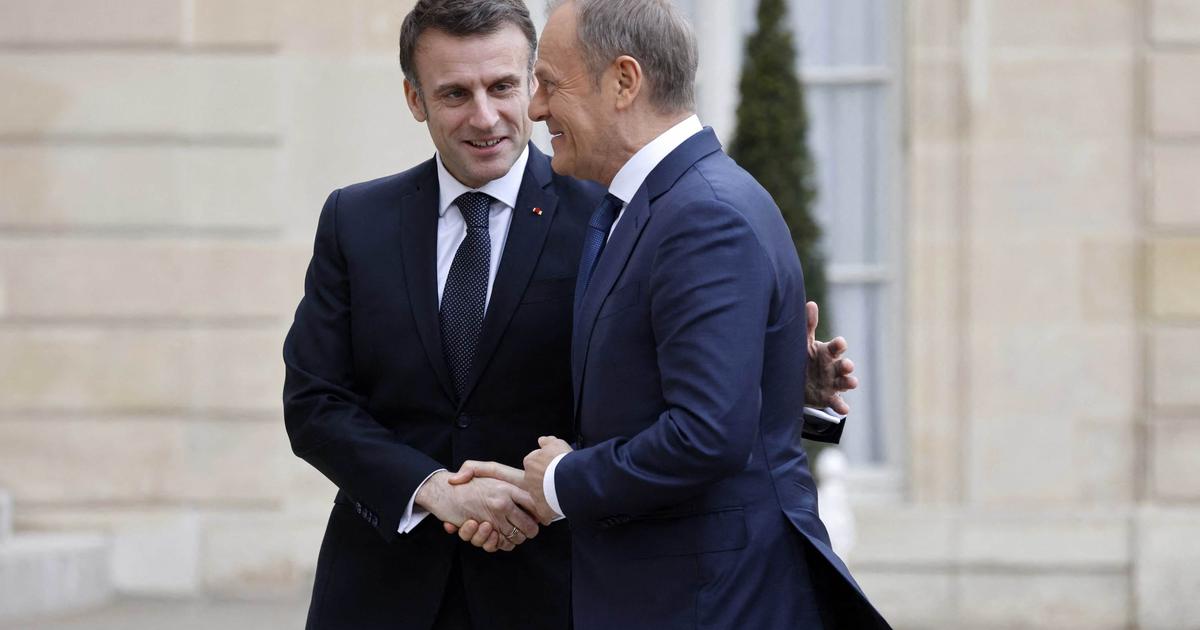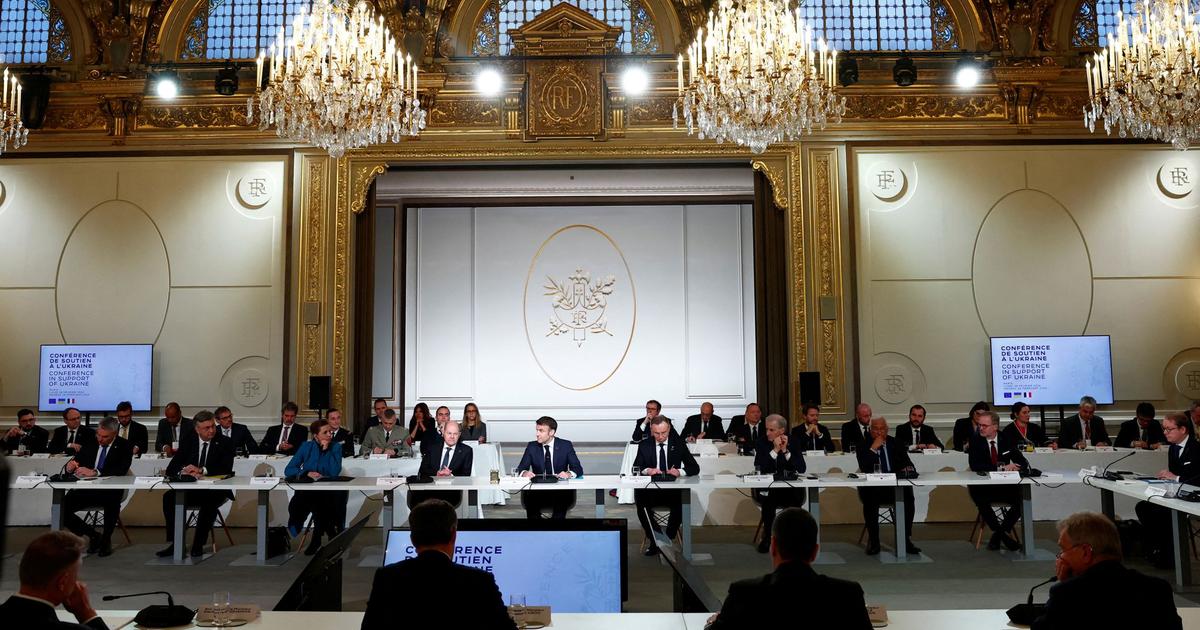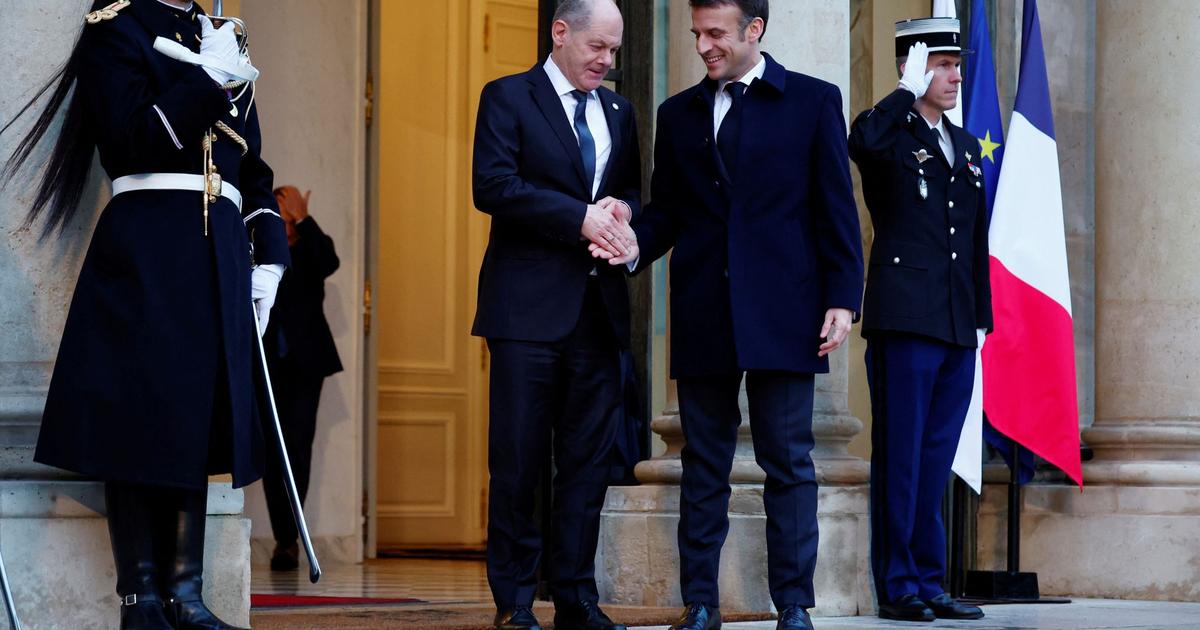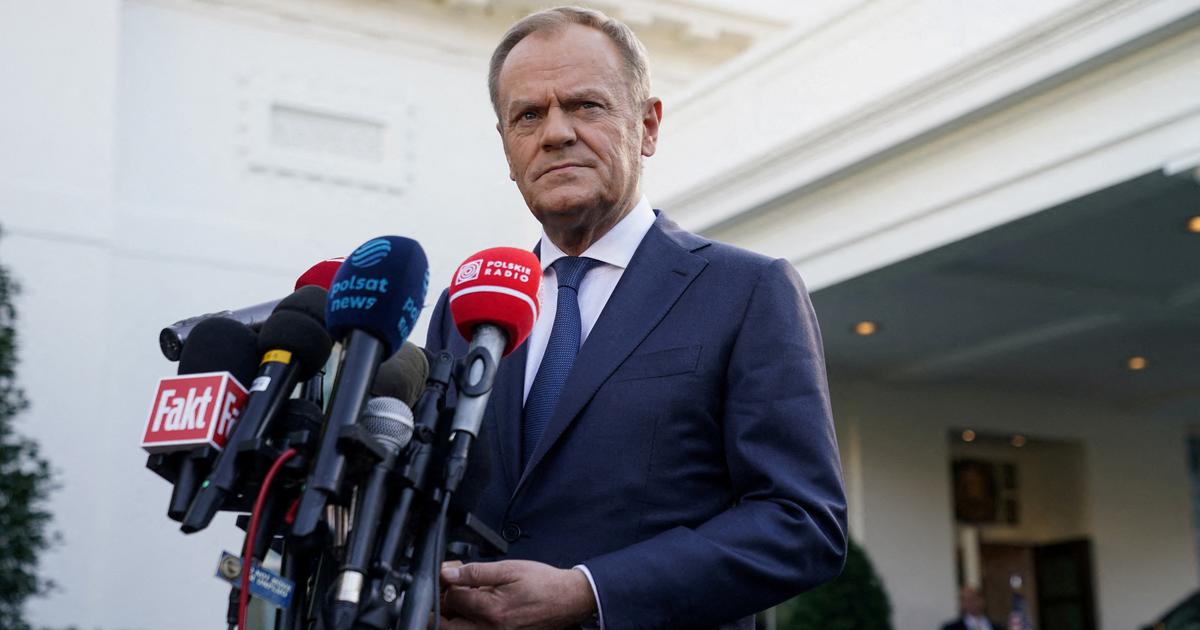Emmanuel Macron (left) and Olaf Scholz, on January 22 in Paris. CHRISTOPHE PETIT TESSON (EFE)
There are moments when history turns upside down and an entire continent changes: the Russian invasion of Ukraine a year ago, the war, is one of those moments.
It is a date, according to the essayist Luuk van Middelaar, comparable to the fall of the Berlin Wall and the collapse of the Soviet bloc.
“A little 1989″, describes Van Middelaar.
And, as in 1989, the events of 2022 and 2023 shake one of the foundations of the European Union (EU): Franco-German friendship.
The war in Ukraine has had two effects for France and Germany, countries that between 1870 and 1945 faced each other in three wars and whose subsequent reconciliation promoted the integration of Europe and the post-war peace.
The first effect has been the displacement of the center of gravity of the EU towards the east of the continent.
Countries like Poland or the Baltics had been warning for years of the danger that Vladimir Putin's Russia represented, compared to a France and a Germany that were compromising with the Russian president.
Time has proved the former right.
More information
latest war news
The German decision last week to authorize the shipment of powerful Leopard tanks to Ukraine is the latest example of this change in the balance of forces.
The countries on the eastern flank of the EU, and Ukraine, had long called for more robust military aid.
Today, the Germany that not even a year ago was reluctant to cut its ties with Moscow and was allergic to any militarization of its foreign policy, will supply the attacked country with a weapon that could prove decisive.
The second effect of the invasion of Ukraine on the Franco-German engine is that the war “exacerbates tensions between the two that already existed before,” according to Sophie Pornschlegel, a senior political analyst at the European Policy Center think tank in Brussels.
Last autumn, the accumulation of disagreements forced Paris and Berlin to postpone
in extremis
a joint council of ministers.
The postponement brought to light the accumulated discontent between the two capitals.
On January 22, on the occasion of the 60th anniversary of the Élysée Treaty, French President Emmanuel Macron and German Chancellor Olaf Scholz finally met their ministers and did a tuning display.
But the day of meetings ended without agreements or ambitious proposals for the EU.
"Between France and Germany, a trompe l'oeil rapprochement", headlined the French
Le Monde
.
And the German
Frankfurter Allgemeine Zeitung
: “Friendship without sweet pampering”.
“They both continue to pretend they are the best of friends, when there are clearly problems,” Pornschlegel analyzes.
“It is quite hypocritical, knowing that Macron and Scholz do not get along.
There are parts of the German government that are clearly pro-European and that want to work better with France: I am referring to the Greens.
There have been efforts in this direction.
But given the political situation in Europe and the crises we are going through, it is irresponsible for France and Germany not to work more closely.
There is a lot of symbolism, but little progress.
The weakening of the Franco-German engine in Europe and, at the same time, the tensions between the two, raise questions.
Will both countries continue to weigh in the future as during the previous 70 years of European construction?
And, in a rapidly changing Europe and world, will they be able to maintain cohesion?
different visions
It would not be the first time that the obituary of the Franco-German engine has been written in advance.
His story is a story of crisis.
Precisely because they both embody different visions of Europe and the world, when they agree they manage to promote Europe.
Together, they represent 42% of the EU's GDP.
To think that this can work without the motor being lubricated is a pipe dream.
To think that that's enough, too.
"It is increasingly evident that the Franco-German is necessary, but insufficient," sums up Arancha González Laya, dean of the School of International Affairs of Sciences Po, in Paris, and former Spanish Minister of Foreign Affairs.
As minister, she promoted a strategy for Spain to forge alliances with other partners, beyond adherence to the Franco-German engine.
González Laya speaks of an "asynchrony" between the two.
“Everyone has a different political rhythm,” he explains.
In France, a hyper-centralized power with a president who faces, in his last term, a notable social response.
In Germany, a tripartite coalition ―social democrats, environmentalists, liberals― with different electoral interests and visions of Europe.
There is something else, a double French bewilderment.
Faced with a Germany that is rearming and could assume its role as a political and military power, as well as an economic one.
And before a less Carolingian Europe, more Slavic and Baltic.
A Europe, moreover, that looks, for its protection, towards Washington.
Ukraine has suspended the plans of the President of the Republic to promote European military autonomy.
Macron's diagnosis in 2019 of a NATO in a state of "brain death" has been denied.
He also fails to dispel the suspicion, among many partners, that his Europeanism is, as Sophie Pornschlegel says, a way of "using the EU for his national interest."
While in Germany one usually speaks of the “Franco-German engine”, in France one speaks of
couple
: couple or marriage.
A practical vision;
the other, romantic.
Continuing with the metaphor, the married couple would be changing homes and suffering the stress that this entails.
"In a couple," says Luuk van Middelaar, "and in the middle of moving, like now, there are many irritations."
He adds: “They have been going through a difficult time since the start of the war, because this war affects two of the three most difficult issues between the Germans and the French: energy and defense.
The third topic would be money and the euro, but this is already more or less fixed”.
With the pandemic and the rescue plans, the EU and the Franco-German motor took a leap forward.
But the war has exposed, in energy matters, the distance between a France that is committed to nuclear power plants, and a Germany that abandons nuclear energy and reconsiders the model of recent decades based on dependence on Russia.
Differences in military matters also surface: France, endowed with the atomic bomb, claims the Gaullist tradition of the “balancing power” between the superpowers;
Germany feels more attached to NATO and the US.
In Paris, when discussing the relationship with Berlin with politicians, a repeated lament is heard: the deliberations within the German coalition complicate communication.
With Scholz, chancellor since December 2021, Macron has failed to establish the communication he had with his predecessor, Angela Merkel.
“The year 2022 is a small 1989″, explains Van Middelaar, founder of the Brussels Institute for Geopolitics and one of the most dedicated intellectuals who thinks about Europe today.
“Perhaps it is not so much, but it belongs to these great events that touch all the balances within the continent, including the Franco-German balance.
And if we remember all the difficulties that the Franco-German couple went through at that time, between Helmut Kohl and François Mitterrand, who, it must be remembered, had been friends for a long time and had worked together... On February 24, Macron and Scholz practically did not know each other.
There is neither the same trust nor intimacy between the two.
And this must be taken into account as well."
Follow all the international information on
and
, or in
our weekly newsletter
.
Subscribe to continue reading
Read without limits
Keep reading
I'm already a subscriber

/cloudfront-eu-central-1.images.arcpublishing.com/prisa/O4TATAQY7SGXUQ4AFH5XGMD7KQ.jpg)







